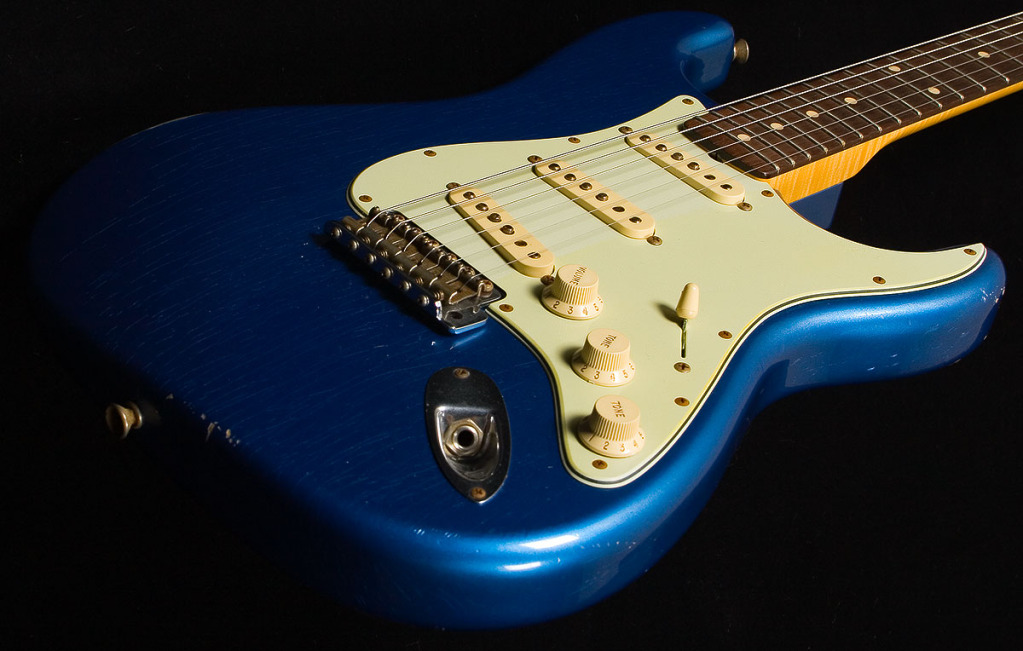
Any musician will find about 1,000 different theories on how best to practice their instrument more than likely 500 of the theories will conflict with the other 500. Music pedagogy (that's a $25 work for instruction technique) is full of very expensive ideas as to how best to learn an instrument. The fact is, there are only two absolutely indispensable elements to learning an instrument REALLY well;
- A motivated student
- A relevant musical style
Notice that I did NOT list a competent instructor. Good instructors, of course, help the process - and poor instructors can hinder it. But a truly motivated learner will do the bulk of the teaching him or her self. Most of the time, students learn by imitation. In the case of guitar players, a lot of the imitation is from recordings of music that deeply inspires them. We hear sounds that give us goose bumps and we just have to copy them. What an instructor brings to the table are some or all of the following;
- A breadth of knowledge of music that may also inspire the pupil.
- A knowledge of the most efficient methods of learning techniques.
- The ability to chart a course to accomplishing the pupil's goals.
- Encouragement!!! I say again, ENCOURAGEMENT!!!
Music is an auditory art form. For three hundred years music teachers have been emphasizing music reading as the principal skill of music performance. I would like to remind all that most of the world teaches music by means of mentoring through rote methods - the reading of music is a European emphasis. There is no substitute for our ears as the first line of music instruction. Hearing the elements of music performance is ALL important in learning the art form. I strongly encourage my students to listen to music and listen carefully. Pay attention to tone, phrasing, elements of technique. In the case of guitar music, here are some items to be very aware of;
- The timbre of the note as it is being struck.
- What tool was used to initiate the tone (pick, fingernail, flesh, hammer on, a mixture)?
- Fretted or open string?
- Speed of the phrasing.
Listen for those elements as you are learning a passage. Try to imitate the player's phrasing as you learn the passage. Don't worry about being a "clone" of another player. You are an individual and even the most diligently imitated music will bear your own signature. By imitating what you hear you will expand your own library of skills.
Spend a generous portion of your practice time listening to recordings that really excite you about your instrument. Consult your teacher as to additional recordings or artists that you can listen to who may be in a similar or complimentary style. This will vastly increase your tool box of techniques with which to make music that satisfies your soul!!





Sooooo... your suggestions for a 9-year-old boy who is finishing up nearly two years of lessons (natural talent, I can honestly say) and an amazing instructor who is moving away?
ReplyDeleteThis is a perfect time for you to bond with him over music. Find out what he likes and share with him what you like. He needs to keep working on all of the chords he has currently learned, so encourage him to play through all the songs he has learned. It is best if he plays sporadically and throughout the day, as though playing the guitar is play and not practice. The old "1/2 hour per day" routine will only encourage him to give up the guitar. Let's see what he gravitates towards. Please keep me posted.
ReplyDelete